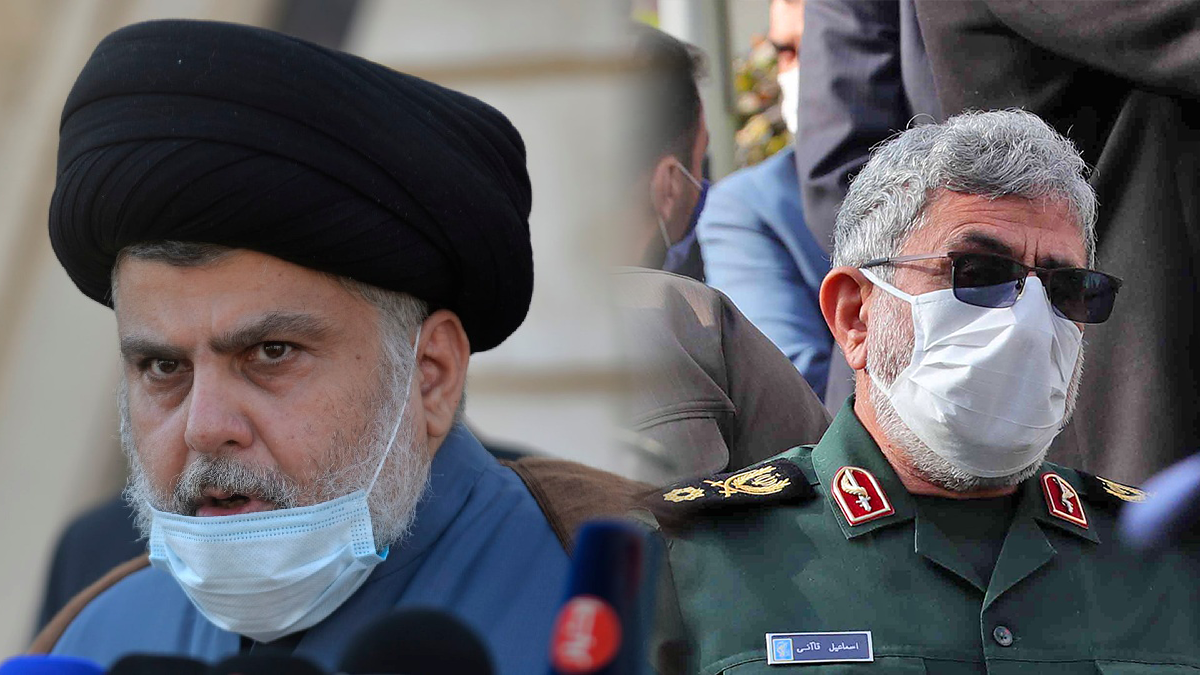The current political impasse in Iraq may, on the long run, further decrease Iranian influence, which is already waning. Al Sadr’s apparent refusal to share power, his populist rhetoric, as well as his support of stronger relations with the Arab World would all have a negative impact on Iran’s presence and influence in Iraq. Despite intensive efforts, Iran has been unable to negotiate a way out of the crisis. Actions by Al Sadr supporters, such as demonstrations and sit ins, appear to suggest that Al Sadr is willing to unleash chaos on the street rather than accept the appointment of a prime minister supported by his rivals. As escalatory actions continue, the chanting of anti-Iranian slogans by Al Sadr supporters could represent a turning point in Iraqi politics.
Tensions between the competing Shiite factions are escalating, although Moqtada El Sadr (Whose movement gained the majority of votes in the last election) called the head of the “Alliance for the State of Law”, Nouri Al Maliki. Despite attempts at civility, Al Sadr is clearly refusing to share power with his Shiite competitors, as he insisted it was his right to name the Prime Minister, while leaders of the competing Shiite alliance have argued that others must also have a voice in this choice. Tensions were further exacerbated by the leaking of recordings in which Nouri Al Maliki allegedly used derogatory language in reference to Al Sadr. In the tapes, Al Maliki allegedly refers to the sustained persecution of Sadrists, which led many of them to be imprisoned, and others to flee the country. This growing rift in the Iraqi Shiite camp cannot but eventually weaken Iran’s influence.
It must be noted that Moqtada El Sadr was once one of Iran’s closest allies. He has over the past few years, however, distanced himself from both Iran and Iraqi factions allied with it. He has seized on a growing tide of Iraqi nationalism to present himself as an independent, nationalist figure, with his strong ability to attract and mobilize supporters enabling him to win the last parliamentary elections. He is regarded by Iran as a strong challenge to its long-term interests in Iraq.
Iran is particularly concerned by Al Sadr’s calls for the dissolution of Iran-backed militias and integrating them in the national armed forces of Iraq. This would place them under the complete control of the state and would remove them as a tool in the political arena, thereby significantly decreasing Iran’s influence.
Moreover, Iran has generally viewed competition between Iraqi political factions as allowing it room to maneuver and establish presence, through playing the role of mediator. Al Sadr’s intention of excluding other factions and maintain sole control over power obviously is in contradiction with this Iranian stance. Iran’s current strategy appears to be to maintain the unity of its allied factions in Iraq, while discouraging them from using violence against the government, which would further delegitimize them.
While Al Sadr is seeking to balance Iran’s influence by creating stronger ties with Arab countries, particularly Saudi Arabia and the UAE, there is also growing regional efforts to contain Iran’s influence. This has been reflected in increasing Arab investments in Iraq. Saudi Arabia, for example, signed five deals with Iraq last April, aiming to establish a joint Saudi-Iraqi investment fund with 3 billion dollars of capital. These funds are to be invested in several areas, including renewable energy and electricity. In contrast, Iran has failed to increase its investments in Iraq, and bilateral trade between the two countries has decreased due to economic sanctions on Iran. Bilateral trade over the last three years averaged at about 10 billion dollars, which represents only 8% of the total of Iraq’s foreign trade. This has allowed other states, such as Turkey and Saudi Arabia, to fill the gap.
The loss of Qassim Suleimani’s “charismatic” impact has also no doubt weakened Iranian influence in the region, and in Iraq. He had a unique ability to influence and mediate between all factions in Iraq, the Sunna and the Kurds as well as Shiite factions. Some attribute the growing distance between Al Sadr and Iran to the loss of Suleimani’s influence, and that Al Sadr is in fact striving to replace the former, becoming the “pivot” of Shiite politics in Iraq. Ismail Qaani, Suleimani’s successor, appears to lack the ability to play that role. Suleimani’s absence may therefore act as one of the factors leading to the decline in Iranian influence in Iraq.
In conclusion, it can be argued that the rise of Al Sadr, and his escalatory tactics to reach his goal of choosing the prime minister and pursuing his foreign policy agenda of closer ties with the Arab states and the US, are likely to gradually reduce Iranian influence in Iraq.


